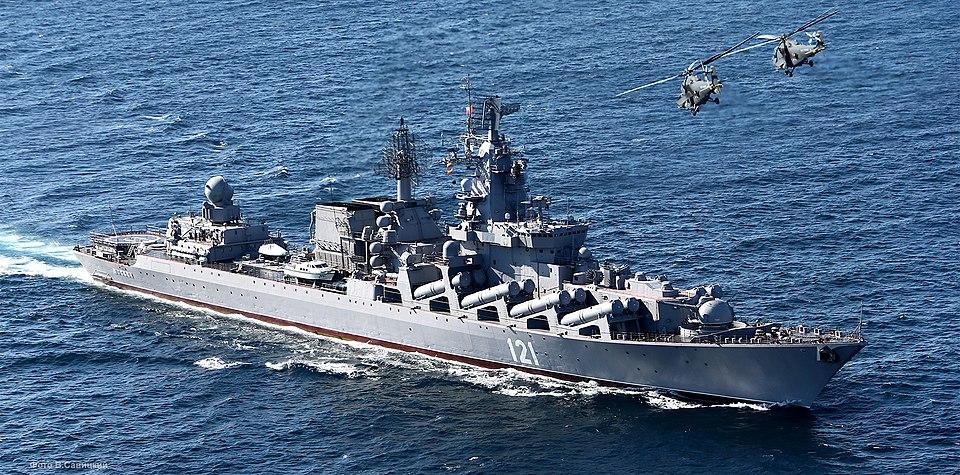In a significant development within regional maritime dynamics, three Russian warships have arrived at the port of Chittagong, Bangladesh, shortly after a high-profile visit by the Chief of Army Staff of the Bangladesh Army to Moscow. This docking marks a noteworthy moment in bilateral relations, as it underscores the strategic ties between Bangladesh and Russia amid evolving geopolitical landscapes. The visit to Moscow, which aimed to strengthen military cooperation and explore defense collaborations, has seemingly paved the way for this naval visit, reflecting both nations’ interests in enhancing military presence and cooperation in the Indian Ocean region. As the global community watches closely, the implications of this naval visit could resonate beyond the immediate regional framework, potentially influencing security dynamics and alliances in South Asia.
Russian Naval Engagement in South Asia: Implications for Regional Security Dynamics
The recent docking of three Russian warships at Chittagong marks a significant shift in military collaboration within South Asia, underscoring the strengthening ties between Bangladesh and Russia following the visit of the Bangladesh Army chief to Moscow. This development is reflective of Bangladesh’s strategic efforts to diversify its defense partnerships amidst regional tensions. The arrival of the Russian naval vessels not only enhances military visibility but also signals an intent to showcase advanced naval capabilities in the Bay of Bengal, a crucial maritime route. The event has drawn attention to the potential reshaping of regional security dynamics, notably in relation to India’s maritime influence and China’s expanding reach in the Indian Ocean.
As the geopolitical landscape evolves, the implications of Russian naval presence extend beyond mere military exercises. Observers are closely monitoring several key factors, including:
- Military Collaboration: The partnership may involve joint exercises, enhancing operational readiness for both nations.
- Strategic Balance: Increased Russian presence could act as a counterbalance to regional powers involved in the South Asian security architecture.
- Economic Interests: The docking reinforces potential future economic collaborations, including arms trade and defense technology transfers.
In light of these developments, stakeholders across South Asia must reassess their national defense strategies, considering the ramifications of new alliances and the recalibration of existing ones. The convergence of Russian capabilities and regional aspirations may redefine not only bilateral relations but also multilateral security frameworks, necessitating a vigilant approach to ensure stability in a contested maritime domain.
Bangladesh’s Strategic Partnerships: Strengthening Ties with Russia amid Growing Geopolitical Tensions
The recent arrival of three Russian warships at Chittagong marks a significant moment in Bangladesh’s blossoming defense relations with Russia. Following the Bangladesh Army chief’s diplomatic mission to Moscow, this development underscores a concerted effort to deepen military collaboration in light of evolving geopolitical dynamics. The visit and subsequent naval presence signal a mutual interest in enhancing military capabilities, as both nations navigate the complexities of an increasingly multipolar world. The partnership aims to strengthen not only defense strategies but also economic ties that encompass sectors such as agriculture and energy.
In light of shifting alliances and regional security challenges, the implications of this partnership are profound. Key points regarding this growing relationship include:
- Increased military cooperation: Joint exercises and training programs are expected to become more frequent.
- Defense procurement: Bangladesh may explore acquiring advanced military equipment from Russia.
- Strategic influence: This alignment could reshape the balance of power in South Asia.
| Aspect | Details |
|---|---|
| Naval Presence | Three Russian warships docked in Chittagong. |
| Military Delegation | Visit led by Bangladesh Army chief to Moscow. |
| Future Collaboration | Focus on joint training and defense modernization. |
Assessing the Future of Defense Cooperation: Recommendations for Bangladesh’s Military Diplomacy
The recent docking of three Russian warships at Chittagong symbolizes a significant milestone in Bangladesh’s military diplomacy, particularly following the Army chief’s visit to Moscow. This move indicates a deepening of defense ties between Bangladesh and Russia, a crucial aspect for a nation looking to bolster its defense capabilities amid regional uncertainties. Establishing multifaceted military cooperation can include areas such as:
- Joint Military Exercises: Engaging in exercises can enhance operational readiness and foster closer ties between military personnel.
- Defense Technology Transfer: Ensuring that technological advancements and indigenous capabilities are upgraded to meet modern defense needs.
- Training Programs: Facilitating training for personnel in advanced military techniques and strategies can further strengthen the defense posture.
To capitalize on this evolving partnership, Bangladesh could explore a structured framework for defense cooperation that engages not only with Russia but also with other countries. A collaborative approach might encompass:
| Country | Type of Cooperation | Potential Benefits |
|---|---|---|
| United States | Military Aid | Enhanced capacity building and modernization of forces. |
| India | Joint Exercises | Improved interoperability and shared intelligence. |
| China | Technology Transfer | Access to advanced military-grade assets and tech. |
Such a proactive stance in military diplomacy can serve Bangladesh’s interests in maintaining sovereignty, enhancing regional stability, and addressing security challenges more effectively in a versatile global landscape.
The Way Forward
In conclusion, the arrival of three Russian warships at the Port of Chittagong marks a significant moment in the evolving military and diplomatic relations between Bangladesh and Russia. Following the recent visit of Bangladesh’s Army Chief to Moscow, this development underscores the increasing defense cooperation between the two nations. As regional dynamics shift and geopolitical interests continue to align, the docking of these vessels may not only enhance Bangladesh’s naval capabilities but also serve as a demonstration of Russia’s commitment to supporting its allies in South Asia. As both countries navigate this relationship, the implications for regional security and collaboration will be closely monitored by analysts and observers alike. The world watches as these strategic ties unfold, potentially reshaping the landscape of military partnerships in the region.
